Oscar winner Whiplash explores a verbally and physically abusive relationship between a band conductor and student. This film will get your blood boiling … How far would you go to be the best? Or in Whiplash’s case, how far would you go to play the best? Many people, including myself, don’t realize the countless hours musician’s put into embodying their expertise to hit that perfect note. Whiplash takes the audience to a whole other level. Actors Miles Teller and J.K. Simmons (winning the Oscar for Best Supporting Actor) go head-to-head in this radically jazzed up film. It’s electrifying. Written and direct by Damien Chazelle, from his own past experiences, amps up the film that is sure to get blood on the wall. Teller plays a young protagonist, Andrew Neiman, a first-year drumming student at the elite Shaffer Conservatory in New York. Inspired by Buddy Rich, Teller and his alter ego go to work on the drums has he beats his toms and bangs his cymbals. Trying to mask his skill and perfect his talent, Neiman is desperately trying to get into the band studio conducted by Terence Fletcher (Simmons). Fletcher finally accepts Neiman to join his studio band, first as an alternate and then working his way up to a core drummer. What Neiman doesn’t realize is that he’s in for a whirlwind of jazz hell. This verbally and physically abusive martinet hurdles chairs at Neiman’s head and slaps him in the face until he’s numb. Neiman is in quote, “a failure.” Simmons transforms into this sinister pig that bullies his jazz students to excellence. Like Gunnery Sergeant Hartman (Full Metal Jacket), Simmons’ malice words slide swiftly off his tongue: “Do you think you’re out of tune? What are you … there’s no f***ing Mars Bar down there, what are you looking at? Look up here, look at me. Do you think you were out of tune?” “You are a worthless, friendless, f**got-lipped little piece of s**t whose mommy left daddy when she figured out he wasn’t Eugene O’Neill, and who is now weeping and slobbering all over my drums like a f***ing nine-year-old girl! So for the final, FATHER-F***ING time, SAY IT LOUDER!” Whiplash becomes a battle of the bands. These provocative and intoxicating performances done by both Teller and Simmons will blow you away. Whiplash, most definitely, hit the right tempo for the Academy this year, receiving three Oscars (Best Supporting Actor, Editing and Sound Mixing). Teller embodies power and nuance into his character, leaving blood on his hands and sticks. Simmons is a true marvel to watch on screen, deserving every part of his Oscar-winning performance. Whiplash is an extraordinary film that hits a level of astonishment. It receives the highest of highs … five out of five stars. Staying true to its title, Whiplash throws its audience into a pulse pounding number and in the end, leaves blood on its set. Whiplash is rated R (Restricted). For strong language including some sexual references.
0 Comments
Academy Award-winning film, Ida, embarks on a quest of truth, grief and loneliness in this postwar Poland. Traveling through Poland in 1962, Polish-born director Pawel Pawlikowski (Last Resort and My Summer of Love) reveals a hardship land under gray sorrow and post-Stalinist skies. Pawlikowski tells the fragile story of an orphan who must pave the way through this haunted landscape, only protected by her spirit and her lonesome companion. 18-year-old Anna (Agata Trzebuchowska) is a young novitiate nun, who is only a few days away from taking her vows in the convent. Within this time frame, Anna learns of the existence of an unknown aunt named Wanda (Agata Kulesza), a former state prosecutor. Wanda boasts grimly about her role in Poland’s Communist government and how they used judicial terror to weed out their enemies. Now a decade later, Wanda’s zealotism is drained away through alcohol, chain-smoking and one-night stands. All that is left of her is bland cynicism. Through this discovery, Anna uncovers a dark family secret dating back to the years of Nazi occupation. When meeting her aunt Wanda, naïve Anna soon discovers that her real name is Ida and her parents were Jewish, murdered by the Nazis. There’s no tact when revealing this declaration to Ida, “You’re a Jew.” Aunt Wanda’s cunning words slip off her mouth as we see a sudden disbelief and shock in Ida’s face. These characters are well aware of the horrors from Poland’s past during Nazi occupation. This alertness adds narrative depth and raw emotion to the story. Just 80 minutes long, Pawlikowski reaches into his countries past and digs deep in uncovering Ida’s future. Through his film’s tragedy, we see potent characters and breathtaking scenery. The film’s simple black-and-white frames add another layer to the story. We travel with Ida and Wanda on their quest for truth about their families unanswered past. Pawlikowski grabbles with the tension surrounding Catholics, Jews and Communist. The drama also contrast between Wanda and Ida’s beliefs in the world – an atheist and a believer. This rare black-and-white gem is one everyone should take time to watch and soak in. Ida not only empowers the horrors of human wrongs, but also studies the human condition on loneliness and faith. This master evocation of time is powerfully written and eloquently shot, which makes it one of my favorites of 2014. It receives the highest of highs … five out of five stars. It’s worth your time, Ida is personal, affectionate, and, most importantly, human. Ida is rated PG-13 (Parents Strongly Cautioned). For thematic elements, some sexuality and smoking. The 87th Academy Awards crowned “Birdman” as big winner, while “Boyhood” was snubbed. The 2015 Oscars took flight with big surprises and painful snubs, but that’s Hollywood. It was an exceptional year for filmmaking and for the first time ever all of the Best Picture nominees (“Boyhood,” “Birdman or (The Unexpected Virtue of Ignorance),” “The Grand Budapest Hotel,” “Whiplash,” “Selma,” “The Imitation Game,” “The Theory of Everything” and “American Sniper”) took home an Oscar. Neil Patrick Harris hosted last night’s party at the Dolby Theatre in Hollywood and he continued to prove that there’s no show he can’t host (previously hosted four Tony’s and two Emmy’s). Harris sang, joked and, of course, stripped. His opening number was a tribute to film and was one of the big highlights from last night. Harris also did a parody scene from “Birdman,” in which Michael Keaton runs through Time Square in his underpants. I would be more than pleased If Harris could keep coming back to host. This year the Oscars were mixed with socially charged commentary – like Patricia Arquette’s speech about gender equality and John Legends speech about protecting the voting rights. Filmmaker’s Ava DuVernay (“Selma”) and Angelina Jolie (“Unbroken”) were snubbed out of the director category this award season, so Arquette took note of that and brought it to attention in her speech, sending Meryl Streep to a standing ovation. “To every woman who gave birth, to every taxpayer and citizen of this nation, we have fought for everybody’s equal rights,” Ms. Arquette said. “It’s our time to have wage equality once and for all, and equal rights for women in the United States of America.” Common and John Legend hit the emotional appeal for the night with their performance of “Glory,” sending the audience leaping to their feet and applauding tearfully. Before that we got the “Everything is Awesome” song that gave the ADHD nation a trippy dose of awesomeness, LEGO awards and all. Lady Gaga also gave a worthy tribute to Julie Andrews and “The Song of Music,” for it’s 50-year mark. She’s no Andrews but she still did a splendid job. With that was the heartbreaking Memoriam that reflected back on some of the greats like Robin Williams and Mickey Rooney, but oddly enough left out the late Joan Rivers. And who could forget the John Travolta face touching? Travolta went from name butchering to face touching on Adele Dazeem A.K.A. Idina Menzel. But as Oscar winner, Graham Moore (winner for Best Adapted Screenplay), simply put it, “stay weird.” Moore's speech was truly inspirational and captivated the night, so Mr. Travolta just stay weird. Back to the films: “Boyhood” and “Birdman” have been battling it out all award season and the spotlight was higher than ever on who would take home the crown. Ultimately, “Birdman” was superior by winning four Oscars, including Best Picture and Director. However, the real winner should have been “Boyhood” as the Academy failed to recognized this revolutionary film. The fact is, “Boyhood” on a technical and narrative scale was groundbreaking for filmmaking. Director Rickard Linklater’s 12-year movie epic blossomed all throughout 2014 and when the stakes were high the Academy sizzled its success. Out of the film’s nine noms, it only managed to take home one (Best Supporting Actress, Arquette) and that is a tragedy my dear friends. Now don’t get me wrong, “Birdman” was spectacular and had every right to win Best Picture as well. This is the type of artsy films I would like to see the Academy recognize more often. Any other year, “Birdman” would have been the easy pick but when it came down to beating out “Boyhood,” I couldn’t see it. Still it happened though. This late bloomer took home four Oscars for the night, including Best Picture, Director and Original Screenplay for Alejandro González Iñárritu. Plus, we got that weird green card joke by Sean Penn that could be taken offensively, “Who gave this son of a bitch his green card?” But Iñárritu laughed it off because they’re good friends. “I found it hilarious. Sean and I have that kind of brutal (relationship) where only true friendship can survive … when I was directing him in ‘21 Grams,’ he was always making jokes like that. We have that kind of relation of old friendship. I thought it was very funny.” Some other big surprises for the night were “The Grand Budapest Hotel” winning four and “Whiplash” winning three. “Grand Budapest” got some Oscar love for its color production design, while “Whiplash” capped off its favorite supporting actor with an Oscar for J.K. Simmons. Other films that won one Oscar were “Ida” (Best Foreign Language), “Theory of Everything” (Best Actor, Eddie Redmayne), “Still Alice” (Best Actress, Julianne Moore), “The Imitation Game” (Best Adapted Screenplay), “American Sniper” (Best Sound Editing) and “Selma” (Best Original Song, “Glory”). Overall, it has been a grand year in achievement for filmmaking and was definitely an enigma when it came to the award season. The Academy had a few more tricks up their sleeves and even if they did not make the right decision, both “Boyhood” and “Birdman” came and conquered with a total of 317 award wins for the entire year. These great films made their place in film history and will someday go down as classics, I guarantee it. Here is the list of all the Oscar winners:
Best Motion Picture of the Year Winner: “Birdman” (2014) Best Performance by an Actor in a Leading Role Winner: Eddie Redmayne for “The Theory of Everything” (2014) Best Performance by an Actress in a Leading Role Winner: Julianne Moore for “Still Alice” (2014) Best Achievement in Directing Winner: Alejandro González Iñárritu for “Birdman” (2014) Best Writing, Screenplay Written Directly for the Screen Winner: “Birdman” (2014) – Alejandro González Iñárritu, Nicolás Giacobone, Alexander Dinelaris, Armando Bo Best Writing, Screenplay Based on Material Previously Produced or Published Winner: “The Imitation Game” (2014) – Graham Moore Best Performance by an Actor in a Supporting Role Winner: J.K. Simmons for “Whiplash” (2014) Best Performance by an Actress in a Supporting Role Winner: Patricia Arquette for “Boyhood” (2014) Best Animated Feature Film of the Year Winner: “Big Hero 6” (2014) Best Foreign Language Film of the Year Winner: “Ida” (2013) – Pawel Pawlikowski Best Achievement in Music Written for Motion Pictures, Original Score Winner: “The Grand Budapest Hotel” (2014) – Alexandre Desplat Best Achievement in Music Written for Motion Pictures, Original Song Winner: “Selma” (2014) – Common, John Legend (“Glory”) Best Achievement in Cinematography Winner: “Birdman” (2014) – Emmanuel Lubezki Best Achievement in Visual Effects Winner: “Interstellar” (2014) – Paul J. Franklin, Andrew Lockley, Ian Hunter, Scott R. Fisher Best Achievement in Production Design Winner: “The Grand Budapest Hotel” (2014) – Adam Stockhausen, Anna Pinnock Best Achievement in Makeup and Hairstyling Winner: “The Grand Budapest Hotel” (2014) – Frances Hannon, Mark Coulier Best Achievement in Costume Design Winner: “The Grand Budapest Hotel” (2014) – Milena Canonero Best Achievement in Editing Winner: “Whiplash” (2014) – Tom Cross Best Achievement in Sound Editing Winner: “American Sniper” (2014) – Alan Robert Murray, Bub Asman Best Achievement in Sound Mixing Winner: “Whiplash” (2014) – Craig Mann, Ben Wilkins, Thomas Curley Best Short Film, Live Action Winner: “The Phone Call” (2013) – Mat Kirkby, James Lucas Best Short Film, Animated Winner:”Feast” (2014/I) – Patrick Osborne, Kristina Reed Best Documentary, Short Subject Winner: “Crisis Hotline: Veterans Press 1” (2013) – Ellen Goosenberg Kent, Dana Perry Best Documentary, Feature Winner: “Citizenfour” (2014) – Laura Poitras, Mathilde Bonnefoy, Dirk Wilutzky To be honest, Seventh Son is a terrible movie, but at least I got a good laugh. From the get-go, Seventh Son never really sparked my interest, but my 14-year-old brother finally talked me into seeing this fantasy mishmash. And you know what? I slightly enjoyed my visit, slightly. Seventh Son is the first unexpected comedy of 2015, I haven’t laughed at something this awful in a long time. Seventh Son falls into the respected category of so-bad-its-almost-good films. But director Sergey Bodrov (Mongol) cursed Jeff Bridges and Julianne Moore’s talent with a lame medieval film about witches and witch hunters. Bridges and Moore come back for a little Big Lebowski reunion, though I would have rather seen them back together in a Coen brother’s film any day. Based on the children’s novel, The Spook's Apprentice, scriptwriters (Charles Leavitt, Steven Knight and Matt Greenberg) send the film into uncontrollable hilarity. So we get cursed into the Middle Ages, where we meet Master John Gregory (Bridges), a spook that hunts witches and does exorcisms. Bridges’ mumbling and grumbling dialog makes it hard to hear what the hell he’s trying to say half the time, but I just went along with his nonsense for the time being. Gregory is now the last of a knightly order, once 1,000 strong. To help him out, he takes on a new apprentice, Tom (Ben Barns), the seventh son of a seventh son. Now, Tom and Gregory go head-to-head with a supernatural witch, Mother Malkin (Moore). With the strange plot line of a Blood Moon increasing Malkin’s power every day, she becomes a threat to humanity and a headache for Gregory. Moore who was breathtaking in Still Alice, gives a cringe worthy performance here. Oh well, she’ll still win an Oscar this Sunday, Feb. 22, so she can drink this bad performance away! This troubled production and long-delayed release didn’t help Seventh Son’s case anymore. It’s loaded with bloated CGI action and cheesy fantasy thrills. The unintentional laugher comes along with the fight scenes, romance scenes and dialogue. There’s Bridges making a goon out of himself in every scene, followed by cheeky bad romance scenes with Barns and Alicia Vikander. Seventh Son tries to be one of the greats (Lord of the Rings and Game of Thrones), but is an epic misfire for the fantasy genre. I almost want you to see this film, almost. In the end, at least I got a good laugh. Seventh Son is rated PG-13 (Parents Strongly Cautioned). For intense fantasy violence and action throughout, frightening images and brief strong language. Clint Eastwood’s (Unforgiven and Million Dollar Baby) American Sniper brings tension and powerhouse acting to the table, fake babies and all. I will get this out of the way before I continue any further. Yes, American Sniper uses a fake baby in one of its scenes and yes it is terrible, but other than that Eastwood, 84, hits a home run by honoring the life of U.S. Navy SEAL, Chris Kyle. Bound by patriotism and blunt force, American Sniper springs into action just in time for the Oscars. Being nominated for six Oscars, including Best Picture and Actor, this film holds its place as a worthy contender for any award. Throughout the entire film, Eastwood battles with the horrors of war and the after affects it puts on our soldiers. Sharpshooter Kyle (Bradley Cooper) was known as the most lethal sniper in U.S. military history with 160 confirmed kills in over four tours in Iraq. Scriptwriter Jason Hall adapts Kyle’s 2012 memoir with a fused pulse ready to ignite. Cooper transforms into our known Texas hero by growing a beard, gaining 40 pounds of muscle and waving his good ol’ Texas flag. As Cooper does with every character, he embodies every aspect of their humanity. Cooper goes all out in this performance by showing us a man who is not only haunted by the evils in this world, but by the men and women he could not save. At the beginning of this film, Eastwood inserts us right into the midst of war. We’re on a rooftop in Fallujah, where Kyle must make the call to take down an Iraqi woman and her son, who may or may not be hiding a grenade. From that moment on, Eastwood has you hooked and sends shivers down your spine. It’s these kinds of moral conflicts that Kyle wrestled with all throughout the war. Between the tours, we see Kyle at home with his wife, Taya (Sienna Miller), and two kids. Here, Eastwood studies Kyle’s relationship with his family and how the war has put a toll on his life. We can see it just through Cooper’s eyes, with a since of sorrow and awareness. He’s always on his guard. Sadly, Kyle’s life was cut short when he was murdered in 2013 by the very people he was trying to help, a fellow comrade, he was 38. Eastwood guides the film all the way up until the very he died. American Sniper ends on a rather depressing note, but it leaves the audience with sheer admiration of Kyle’s life and spirit for serving our country. Freedom comes with a price and Eastwood shows us that very price through the very eyes of the men and women we send over on those battlegrounds. American Sniper is rated R (Restricted). For strong and disturbing war violence, and language throughout including some sexual references. Layered with its superb acting and underlining message, Selma brings the civil rights movement and Martin Luther King Jr. to the present day. With everything that has happened in St. Louis last year, Selma is a film that engulfed me with its historical narrative and idealism. The modern day racial intolerance has nothing and everything to do with Selma. Director Ava DuVernay (Middle of Nowhere) brought together inspiration and dramatic power to hit moviegoers hard on an emotional level. She decided to focus on a key event (Selma to Montgomery marches) that changed the course of history for the United States between blacks and whites. Scriptwriter, Paul Webb, gives Selma a beating heart as we march with Martin Luther King Jr. (David Oyelowo) on that very bridge. It’s March 7, 1965; Alabama state troopers and members of the Dallas County posse attack 600 unarmed civil right demonstrators with armed billy clubs and tear gas on the Edmund Pettus Bridge, Selma, AL. These demonstrators were trying to peacefully march 50 miles from Selma to Montgomery, AL, as part of a long-enduring protest against the denial of voting rights to Southern African-Americans. The event was televised all over the country and opened the eyes to many Americans of what racial intolerance really was. This historic event is now known as “Bloody Sunday,” and showed a rather brutal time in our past as many blacks were beaten bloody by the state troopers. The murder of 26-year-old Jimmie Lee Jackson also played a crucial role to this march being started. Jackson was mortally shot by a state trooper during a peaceful march in Marion, AL. His death haunted MLK and inspired the demonstrators to march from Selma to Montgomery. A few days later, MLK led the marchers but decided to turn back before crossing over the bridge, in fear of further violence. By the third time MLK takes a stand on the bridge with 8,000 marchers, their hard work and effort finally paid off and with the help of President Lyndon B. Johnson’s (Tom Wilkinson) televised speech over the subject matter. On March 21, the marcher’s pave the way from Selma to Montgomery where Mr. King, himself, delivers the speech How Long, Not Long at the State Capitol Building. All of this above holds value to a partial plot, as I do not want to spoil what comes before it in the film. DuVernay brings a bold new film to the screen and is backed by passionate actors (Oyelowo, Carmen Ejogo, Common, Omar J. Dorsey, Keith Stanfield, Lorraine Toussaint, Oprah Winfrey, Cuba Gooding Jr., Wilkinson and Tim Roth). DuVernay only captures a piece of the American civil rights movement and she knew this going into this project, but this film serves as a bigger picture to that movement. It showed us how far we have come as a society towards unity and yet how far we are still from that. British actor, Oyelowo transforms into preacher and leader everyone knew in the ‘60s. Oyelowo gives MLK dignity and grace to the role as he captives the audience with his strong spoken words and persuasion. One of the best performances of the year comes from Mr. Oyelowo, by what it means to truly transform into the character. Sadly, DuVernay and Oyelowo did not get an Oscar nom for their sheer authenticity and craftsmanship in Selma, while they undoubtedly deserved them. If DuVernay had gotten a nomination for Best Director, she would have been the first black women director to receive this nom in the 87 years of the Academy. While the Oscars may have snubbed Selma, it’s still a highly recommendable film to see. DuVernay paints a portrait of MLK’s life vividly on screen and Oyelowo grounds his physical roots to breathe words of truth out of the picture and beyond. Winfrey also produces and acts in this picture. She plays Annie Lee Cooper and embodies her character with heartbreak and solemn. Along with her are Ejogo, Common, Dorsey, Stanfield, Toussaint, Gooding Jr., Wilkinson and Roth, who also embodied every aspect of their respected characters. Even though the King’s estate did not give DuVernay permission to use MLK’s speeches word-by-word due to copyright issues, DuVernay still takes the right path by using her creative license to recreate parts of these speeches and to use them alive and afresh. This factor helped benefit Selma in a whole different way. Dr. King's speeches uphold this film and breathe life into tragic areas. It’s a must see film of 2014 and is one to reflect upon after viewing, for me, Selma hit close to home and is a glorious testament of equality then, now and future. Selma is rated PG-13 (Parents strongly cautioned). Violence, bigotry, brief cigarette smoking. Led mostly by the late Robin Williams, Night at the Museum 3 ends on a cinematic sweet note. Sequels can get tedious after a while, but Night at the Museum: Secret of the Tomb amazingly recaptures its original roots from 2006. Where the second film (Battle of the Smithsonian) squandered, the third film takes us down a familiar stroll through old halls. The special effects are solid, the plot is touching and the acting is good (Ben Stiller, Owen Wilson, Dan Stevens, Ben Kingsley, Steve Coogan, Rebel Wilson, Ricky Gervais, Dick Van Dyke, Bill Cobbs and the late Mickey Rooney), especially coming from the late Mr. Williams. A little tear sheds every time you see him appear on screen. This time around, Larry (Stiller), the security guard, has another problem when the magic in the museum that makes the wax characters come to life is failing. This strange occurrence is making Teddy Roosevelt (Williams); tiny pals Jedediah (Wilson) and Octavius (Coogan); Sacajawea (Mizuo Peck); Attila the Hun (Patrick Gallagher); Prince Ahkmenrah (Rami Malek); the adorable monkey Dexter; and the others act differently. Night at the Museum 3 also introduces two new characters, a cheeky security guard, played by Rebel Wilson, and Sir Lancelot, played by Stevens (Downton Abbey). So it’s up to Larry and the gang to fix the problem and break away from the traditional museum setting by taking a road trip to London. It’s sweet and goofy family fun. The final film sends off the trilogy on a gratifying note. But what really makes the film is Williams’ performance. He stole the show every time he made an appearance on the big screen. Williams’ charisma lightened me up and put a smile on my face. His last and final scene in the film will make you sob continually as he gives a heartwarming final speech. Night at the Museum 3 is a grand farewell that takes the entire family on one last wild journey. Night at the Museum 3 is rated PG (Parental Guidance). For mild action, some rude humor and brief language. At 62, Liam Neeson can still kick ass, to bad I can’t say the same thing about the rest of the film … In 2009, Bryan Mills (Neeson) took fire as the ex-CIA badass that took out half of the baddies in Paris to save his daughter from sex trafficking. Taken wasn’t the best film of 2009, but it was a decent action thriller that action junkies had come to expect. The plot was rather simple: when slave traders take Neeson’s daughter; it’s off to Europe where the ex-CIA tracks down the baddies with fire and brimstone. Director Pierre Morel infused this film with strong action sequences and tension, while Neeson backed the film with powerhouse acting. Somehow, Taken not only got a sequel but a threequel, which was completely unnecessary. And if you though Taken 2 was bad just wait until you get a load at this film. Taken 3 is beyond awful, it’s unforgivable. Third time around, we get thrown into a bizarre plot where the relatives of Albanian slave traders, from Taken 2, are still pissed-off at Neeson and want revenge on him and his family. The Mills', of course, are on a happy family vacation in Istanbul. Suddenly, the Albanian’s capture Bryan and his wife, Lenore (Famke Janssen), and she is brutally murdered. Bryan is framed for his wife’s death and left on the run from the CIA, FBI and the police. At this point, director Olivier Megaton and scriptwriter Robert Mark Kamen are settling for any bone thrown at them. Talk about beating a dead horse, these sequels should have never existed. Taken 3 is bloated with sloppy action sequences, incoherent direction and lazy execution. Do yourself a favor; just watch Neeson’s 2015 Super Bowl commercial for Clash of Clans. That parody alone is more awesome than anything happening in this ludicrous film. The only thing this film is taking is the audience's money. It’s time to retire Mr. Mills. Please, no more. Taken 3 is rated PG-13 (Parents Strongly Cautioned). For intense sequences of violence and action, and for brief strong language. Coming from a huge Paul Thomas Anderson fan, Inherent Vice left me with sheer disappointment. Now, this film is far from a disaster, but coming from the same director that brought us Boogie Nights, Magnolia, There Will Be Blood and The Master, my expectations were extremely high … maybe too high. PTA decided to tackle Thomas Pynchon’s 2009 stoner noir novel and turn it into a big screen adaption. Pynchon is known for his dense and complex novels, which can be difficult to translate to film, but that didn’t stop PTA. The problem was not the film itself, but the loss of PTA’s artistic skill set. We have all come to know him for his bold character studies, layered imagery and potent emotional depth. When you watch a PTA film, you don’t just watch it for pleasure but to emotionally move you. His films shake you to your core and make you examine your own life. I could spend hours on end watching PTA films from the past trying to dissect them piece-by-piece. His films will leave you numb by then end and that is something only true raw power can do. Sadly, I did not have that same emotion after seeing Inherent Vice. But Pynchon fans will eat this film up like pot brownies. Besides the infuriating script, the cast (Joaquin Phoenix, Josh Brolin, Owen Wilson, Katherine Waterston, Reese Witherspoon, Benicio Del Toro and Martin Short) is stellar. It’s Los Angeles, 1970 and PTA throws us right into the midst and chaos of private eye hippie, Doc Sportello (Phoenix). But when Doc’s former girlfriend, Shasta Fay Hepworth (Waterston), shows up in trouble the plot thickens. Shasta is currently involved with a mysterious businessman, Mickey Wolfmann (Eric Roberts), and needs Doc’s help to prevent a love triangle between Mickey’s wife and wife’s lover. Doc is so stoned that he agrees to help but ends up getting caught in a rabbit hole of mix-ups and mayhems. Doc’s adventure leads him to Nazi-bikers, stoners, prostitutes, crack-head dentist and the unknown corporation called, Golden Fang. Time to pile on the characters, there’s the missing musician (Wilson) with his junkie wife (Jenna Malone), a coke-addict dentist (Short), an assistant D.A. (Witherspoon), a best friend lawyer (Del Toro) and a muscle head cop, Bigfoot Bjornsen (Brolin). Out of all the characters, Brolin is the best one. Sailing high and mighty as the badass in-your-face cop, Brolin is on fire. But by the end of this stoner film, I didn’t feel the same piazza as I did in previous PTA films. PTA stayed true to Pynchon's novel but looses his artistic touch in the long run. Inherent Vice is at times frustrating and other times a hilarious disarray of a film. It’s PTA’s first film that never fully broke away, which was disappointing. But Pynchon fans will have a blast with this trippy ride, as for PTA fans, have no fear the master still has more future cards up his sleeves. Inherent Vice is a film one can’t fully comprehend, so just lay back with Doc and let the drugs kick in … Inherent Vice is rated R (Restricted). For drug use throughout, sexual content, graphic nudity, language and some violence. |
Ryan Arnold
Welcome to For Your Consideration:
akajeannette Analysing Horror w/ Lauren Awards Season Blog Candid Cinema Cinefied Cinemania World The Cinematique CRP Writes Cup Of Soul Show Ephie Female Gaze: The Film Club Filmotomy Film Posers From the Front Row In Their Own League Insert Montage InSession Film Jacob Throneberry Latinx Lens Loud and Clear Film Reviews Maggie Lovitt Mashley at the Movies The Mendez Movie Report Mike, Mike, and Oscar The Movie Oracle Ms. Marya E. Gates Next Best Picture Offscreen Central The Oscar Expert Rachel's Reviews Reel and Roll Films Rendy Reviews Reos Positive POV Ripe Banana Shaurya Chawla ShuffleOnline The SoBros Network Strange Harbors Tasha Jagger Untitled Cinema Gals Project Movie ReviewsArchives
March 2024
|
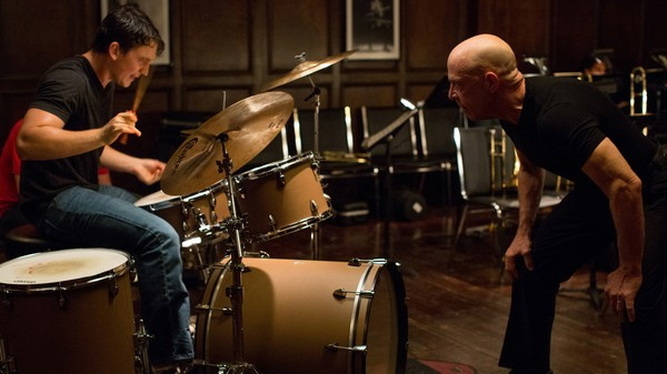
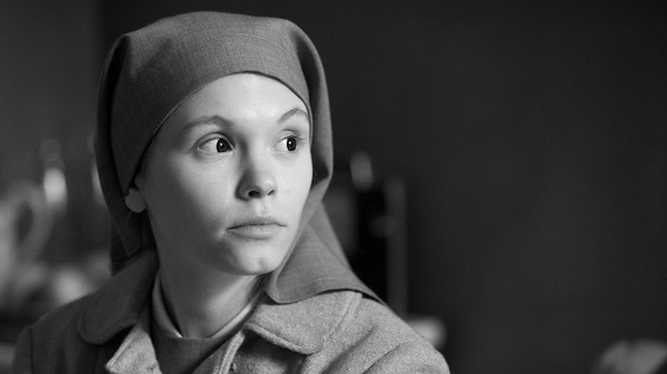
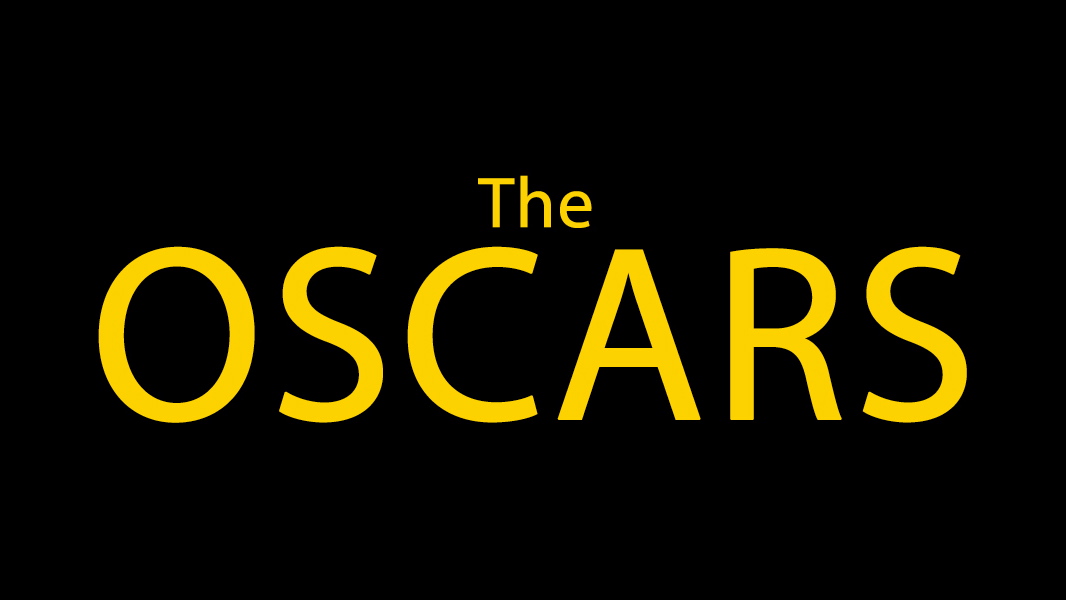
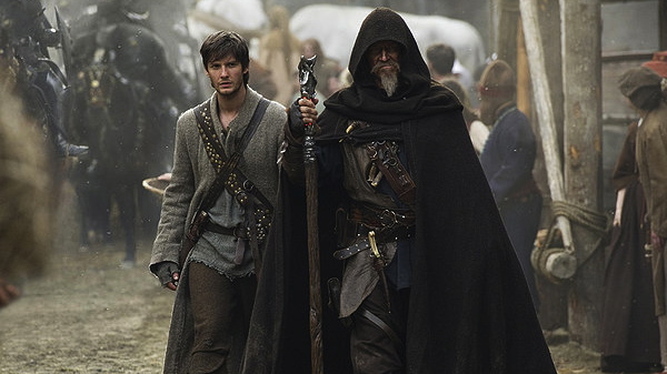

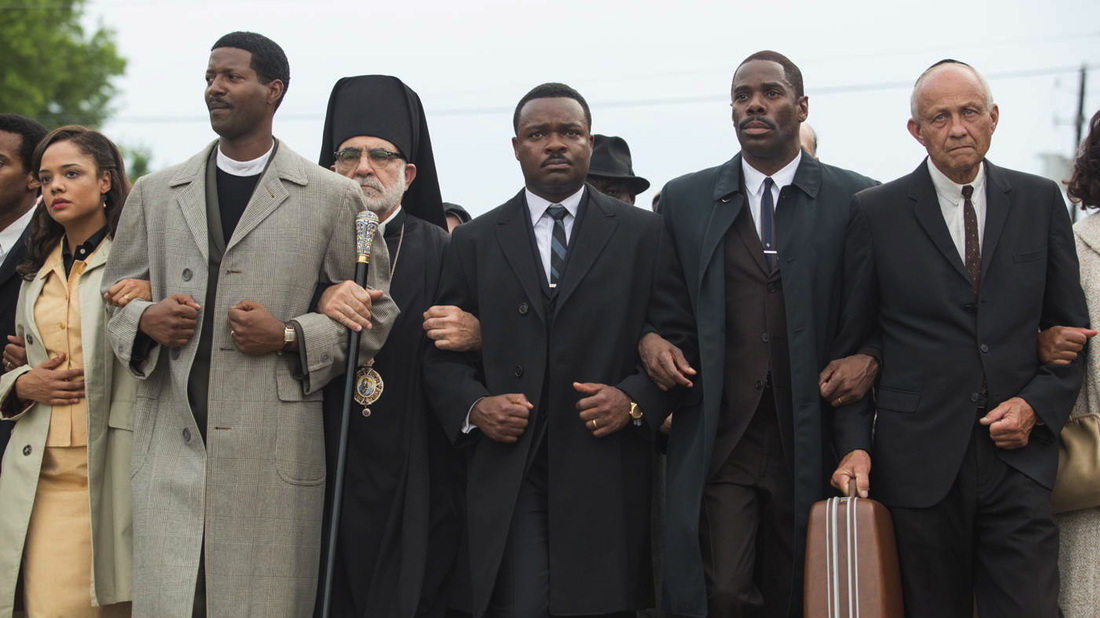
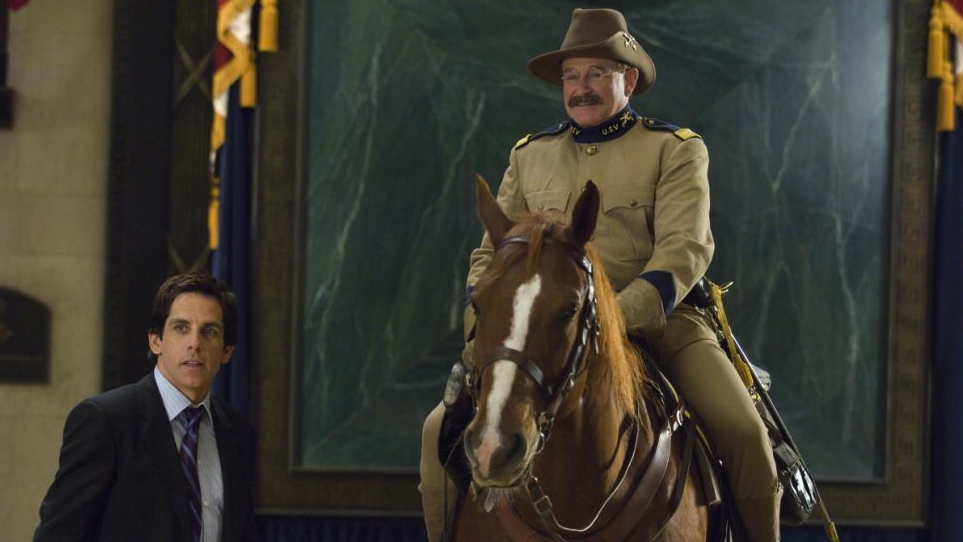



 RSS Feed
RSS Feed
